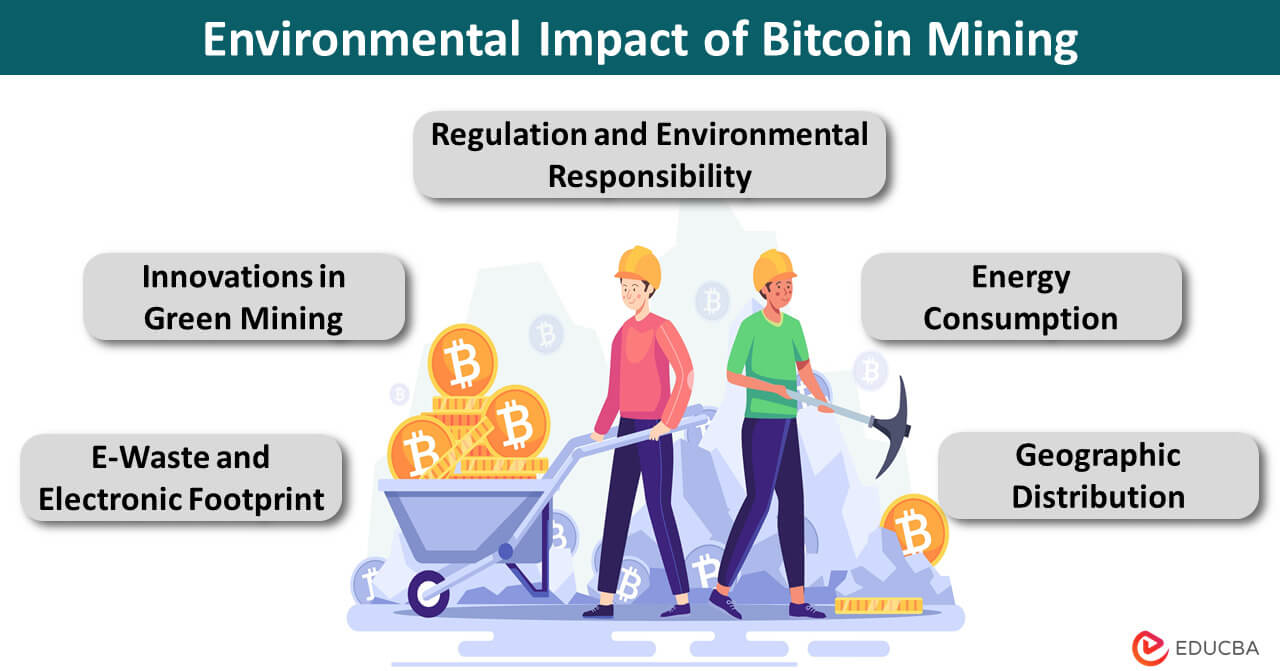Introduction to Bitcoin Mining
Bitcoin has transformed the financial landscape, but its energy-intensive mining practices have raised environmental concerns. Immediate Innovault addresses these concerns by connecting traders with investment education, offering valuable insights into responsible investing in the evolving cryptocurrency market.
Let’s dig into Bitcoin mining, its energy consumption, and the evolving landscape of environmental responsibility.
What is Bitcoin Mining?
Bitcoin mining refers to the creation of new bitcoins and the verification of transactions. Miners use high-powered computers to tackle complex problems, ensuring the validation of transactions and the integrity of the network. However, discussions about the environmental consequences of mining have emerged due to its energy-intensive nature.
The Energy Consumption Debate
1. Myth vs. Reality: Dispelling Common Misconceptions
Some people think Bitcoin uses way more energy than regular money systems. But actually, when you look at it properly, Bitcoin uses less energy than traditional banking and gold mining.
2. Factors Affecting Bitcoin’s Energy Consumption
The amount of energy Bitcoin uses depends on the type of computers used for mining, how secure the network needs to be, and how many people are mining. The energy use also changes based on the price of Bitcoin and how many miners are active at any given time.
Geographic Distribution of Mining
1. Bitcoin Mining Around the World
It happens in different parts of the world, like China, the United States, and Russia. These places have different access to cheap and clean energy, which affects how environmentally friendly the mining process is.
2. Renewable Energy
Some Bitcoin miners use renewable energy sources such as solar, wind, and hydroelectric power. It helps make the mining more environmentally friendly. Places with a lot of clean energy can become good locations for sustainable Bitcoin mining.
3. Case Studies of Environmental Policies
Countries where it occurs are making regulations to address environmental issues. For example, China is limiting coal mining, and Iceland is using its geothermal energy for more eco-friendly mining.
E-waste and Electronic Footprint
1. The Lifecycle of Mining Equipment
Mining equipment used for Bitcoin has a limited lifespan, and when it’s no longer useful, it becomes electronic waste (e-waste). Getting rid of old system is a problem for the environment.
2. Sustainable Practices and Recycling Initiatives
To deal with the issue of e-waste, some mining companies are starting programs to recycle their old equipment. These efforts are meant to reduce waste and regain valuable resources.
Innovations in Green Mining
1. Eco-Friendly Mining Technologies
New technologies in mining are helping the industry be more eco-friendly. Things like better cooling systems, efficient miners, and ways to reuse energy are making mining more sustainable.
2. Promising Projects and Initiatives
Some projects, like Square Crypto Clean Energy Initiative and the Greenidge Bitcoin Mining Center in New York, are leading the way in making mining more environmentally friendly. They use natural resources and extra energy to lessen the impact mining has on the environment.
Regulation and Environmental Responsibility
1. Government and Regulatory Oversight
Governments and regulatory bodies worldwide are realizing it’s important to watch over and manage the impact on the environment. They are creating sets of rules to encourage responsible mining practices.
2. Environmental Concerns and Adaptation
People in the Bitcoin community are actively working to deal with environmental issues. Many community supporters are pushing for using energy-efficient methods like Proof-of-Stake (PoS) instead of the current energy-heavy Proof-of-Work (PoW) system. This change aims to significantly lower the overall energy used in Bitcoin mining, showing the industry’s dedication to sustainability and causing less environmental harm.
Final Thoughts
Bitcoin mining has some environmental concerns because it uses a lot of energy. However, it’s important to compare this to the environmental impact of traditional financial systems. The good news is that the Bitcoin mining industry is working to be more environmentally friendly. They are using better mining methods, switching to renewable energy, and following rules to reduce their impact. As technology improves, the cryptocurrency industry will likely become even more eco-friendly.
Recommended Articles
We hope this article on Bitcoin Mining was informative and beneficial. To learn about related articles, refer to the below articles.

